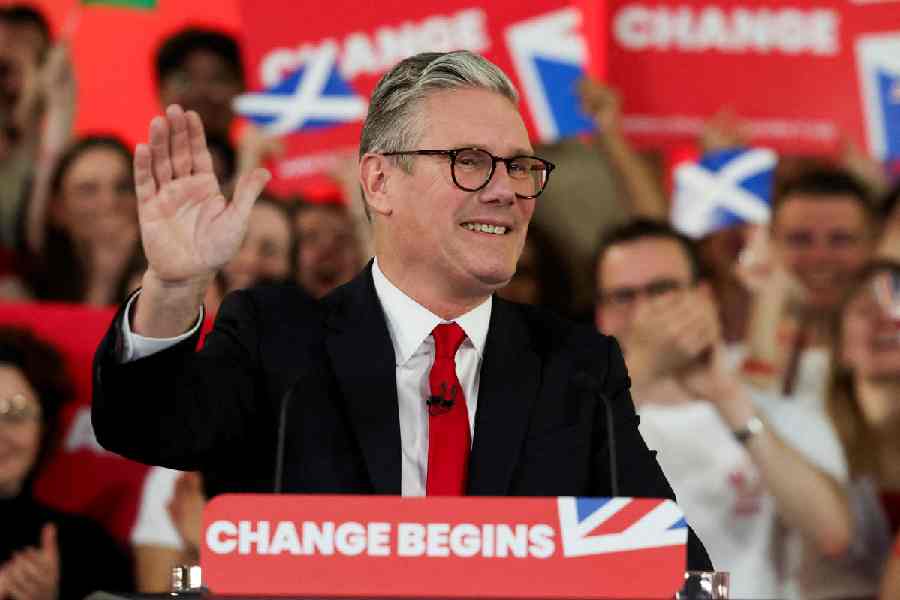Hunger pangs
Sir — Political gaffes can be unforgettable. No politician in the world is immune to making accidental slips, which lead to them being censured and ridiculed. Recently, the British prime minister, Keir Starmer, made a slip during a conference where he called for the return of “sausages” from Gaza instead of “hostages”. Although Starmer corrected himself, the slip perhaps suggested that he was hungry or thinking about his next meal. Starmer should not give speeches on an empty stomach because saying ‘two-steak solution’ instead of ‘two-State solution’ would add to his woes.
Debjani Nandy, Calcutta
Key challenges
Sir — The newly-elected Sri Lankan president, Anura Kumara Dissanayake, will have his hands full steering his country in a new direction and resuscitating its crisis-laden economy (“Tasks ahead”, Sept 26). In the 1970s and the 1980s, Dissanayake’s party led insurrections to overthrow the Sri Lankan State. Now Dissayanake will have to ensure a clean public life to sustain the faith that voters have reposed in him. Despite his anti-India stance in the past, Dissanayake should maintain cordial relations with New Delhi, which helped its neighbour weather its worst economic crisis.
K. Nehru Patnaik, Visakhapatnam
Sir — Sri Lanka’s faith in political dynasties has eroded. The election of Anura Kumara Dissanayake, a non-dynast, Left-leaning politician, as the president underscores a shift in public opinion (“Lanka gets its first Marxist president”, Sept 23). Dissanayake must take cognisance of the diverse implications of the verdict, including the need to revamp the economy and strengthen federalism. He should also earn the trust of the Tamil-majority districts that did not vote for him.
With Sri Lanka’s economy expected to grow this year, Dissanayake must balance populist demands with fiscal prudence. But his party, the Janatha Vimukthi Peramuna, remains favourably disposed towards China. It remains to be seen whether Dissanayake can prioritise the country’s well-being over the interests of his party.
S.S. Paul, Nadia
Sir — The ascent of Anura Kumara Dissanayake to Sri Lanka’s presidentship marks a seismic shift in the nation’s political landscape. Public discontent against the corrupt practices of and the economic mismanagement by the outgoing government had been simmering for a long time. Dissanayake will have to strive to balance his election promises with Sri Lanka’s debt obligations. The coming months could bring some dramatic changes in Sri Lanka’s politics.
Ranganathan Sivakumar, Chennai
Build resilience
Sir — The implementation of an advanced weather forecasting system and weather modification initiatives under the Centre’s Mission Mausam can help mitigate extreme weather events (“Weather shield”, Sept 19). Intensive weather monitoring can boost agricultural production, mitigate global warming, and provide several economic benefits. But such an initiative would burden the exchequer.
Research should be undertaken to reduce costs. Adopting sustainable weather modification technologies, forming regulatory bodies, and following best global practices can be prudent steps in this regard.
Prasun Kumar Dutta, West Midnapore
Emergency aid
Sir — With workplace fatalities rising in India, it has become necessary to equip employees with comprehensive CPR training so that the one nearest to the victim can promptly respond in case of a medical emergency. The office management must be proactive and take the initiative to impart such training to their employees.
Tapan Dutta, Calcutta










